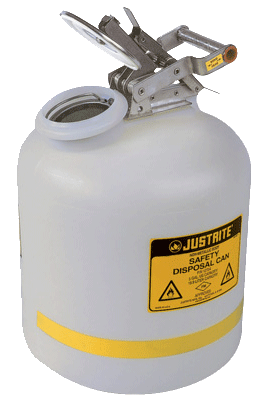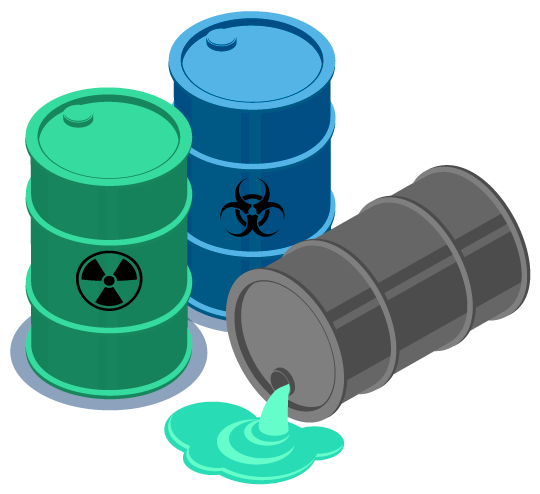Recognizing the Comprehensive Refine of Liquid Garbage Disposal: Ideal Practices and Environmental Influence Considerations
The administration of fluid garbage disposal is a diverse issue that calls for a thorough understanding of numerous best practices and their connected ecological influences. From the kinds of liquid waste created to the techniques utilized for collection, treatment, and final disposal, each action plays a crucial role in guarding environments and public health and wellness. As regulative requirements progress and technology breakthroughs, the conversation around these processes ends up being increasingly significant. What effects do these modifications hold for future sustainability efforts, and exactly how can stakeholders make certain that they are appropriately addressed?
Sorts Of Fluid Waste
Recognizing the different kinds of liquid waste is necessary for efficient administration and disposal practices. Fluid waste can be generally categorized into numerous types, each requiring unique handling and treatment approaches.
Industrial liquid waste commonly contains hazardous products, consisting of heavy steels, solvents, and chemicals, produced during producing procedures. These wastes demand stringent regulative compliance to safeguard human wellness and the environment. Residential fluid waste mostly refers to wastewater produced from houses, including sewer and greywater, which, although less poisonous, can still present considerable dangers if incorrectly handled.
Agricultural fluid waste, including runoff from ranches, frequently has fertilizers and pesticides that can lead to ecological degradation if not treated effectively. Clinical liquid waste, produced from medical care facilities, includes contaminated fluids such as bodily fluids and chemicals, requiring specialized disposal methods to protect against infection and environmental contamination.
Finally, oil and grease waste, generally generated by restaurants and auto industries, can trigger serious blockages in sewer systems otherwise handled properly. Understanding these classifications promotes targeted approaches for treatment, compliance with guidelines, and efficient disposal techniques, eventually advertising ecological sustainability and public wellness safety.

Collection Techniques
Effective collection techniques are essential for the correct monitoring of liquid waste, making certain that it is collected safely and efficiently before therapy or disposal. Different techniques are utilized depending on the type of liquid waste produced, the volume, and the details attributes of the waste.
One typical approach is making use of dedicated collection tanks or sumps, which are designed to capture liquid waste at the resource. These systems frequently integrate pumps that assist in the transfer of waste to bigger storage space containers or therapy facilities. In addition, mobile collection units geared up with vacuum technology are utilized in circumstances where waste is produced intermittently or in hard-to-reach locations.
For commercial setups, closed-loop systems can properly decrease leaks and spills, enabling the recuperation and reuse of fluid waste. It is additionally necessary to educate workers on correct collection protocols to mitigate threats connected with harmful substances.
Additionally, implementing routine maintenance timetables for collection devices guarantees optimum performance and security. The assimilation of innovative surveillance systems can enhance collection effectiveness by giving real-time data on waste levels and prospective dangers. In general, efficient collection techniques are foundational to lasting fluid waste monitoring techniques.
Treatment Procedures
Treatment procedures play a crucial duty in the administration of liquid waste, changing possibly hazardous materials into secure effluents or reusable resources - liquid waste disposal. These procedures can be generally classified into physical, chemical, and organic methods, each tailored to resolve specific contaminants existing in the waste stream
Physical treatment methods, such as sedimentation and purification, work by removing put on hold solids and particulate matter. These strategies are often the very first step in the therapy chain, effectively reducing the load on succeeding procedures. Chemical treatments entail using reagents to neutralize unsafe materials, speed up hefty metals, or oxidize natural pollutants, therefore boosting the security of the effluent.
Organic treatment procedures, consisting of activated sludge systems and anaerobic digestion, profit from the natural capabilities of microorganisms to weaken raw material. These methods are especially reliable for wastewater having biodegradable pollutants. Advanced therapy technologies, such as membrane filtration and advanced oxidation procedures, are significantly used to attain higher degrees of purification.
Incorporating a combination of these treatment techniques not only ensures conformity with governing requirements but additionally advertises ecological sustainability by recovering valuable resources from fluid waste.
Disposal Options
How can companies ensure the secure and responsible disposal of fluid waste? Reliable disposal alternatives are critical for guarding public wellness and the environment. have a peek at these guys The key methods consist of land incineration, therapy, and disposal followed by discharge into community wastewater systems.
Land disposal includes the mindful containment of fluid waste in assigned garbage dumps, making sure that it does not seep right into surrounding dirt or water. Incineration, on the various other hand, subjects fluid waste to high temperatures, converting it into ash and gases, which call for correct filtration to lessen discharges. This technique appropriates for contaminateds materials that can not be treated through conventional methods.
In situations where liquid waste can be treated, organizations might go with chemical or biological therapy processes to counteract damaging parts before releasing the dealt with effluent into metropolitan systems. This route typically straightens with governing needs, making sure that the effluent meets safety requirements.
Ultimately, companies should perform complete assessments of each disposal option to establish its stability, taking into consideration aspects such as waste composition, regulatory conformity, and possible risks to health and wellness and the setting. By choosing ideal disposal techniques, services can add to a liable waste monitoring strategy.
Environmental Impact
The ecological impact of liquid waste disposal is an essential factor to consider for companies looking for to reduce their environmental impact. Furthermore, the discharge of without treatment right here or improperly dealt with waste right into surface area waters can result in eutrophication, leading to oxygen depletion and the subsequent fatality of fish and various other microorganisms.

To alleviate these impacts, organizations must adopt ideal practices such as implementing strenuous waste therapy processes, advertising recycling and reuse, and sticking to governing criteria. By taking a positive strategy to fluid waste monitoring, entities can considerably lower their ecological impact while supporting lasting development objectives. Ultimately, an extensive understanding of the ecological effects related to liquid waste disposal is essential for notified decision-making and accountable stewardship of natural deposits.
Final Thought
Effective administration of liquid waste is essential for securing environmental stability and public health. By adopting finest practices in disposal, collection, and treatment, together with adherence to governing requirements, the capacity for dangerous contamination of ecological communities can be substantially minimized. Continual improvements in innovation and processes add to sustainable waste monitoring initiatives. Eventually, a comprehensive understanding of fluid garbage disposal not only reduces environmental effects yet like this likewise promotes a dedication to liable resource monitoring and environmental stewardship.
The monitoring of liquid waste disposal is a complex problem that needs a thorough understanding of various ideal practices and their connected environmental impacts. From the kinds of fluid waste created to the approaches employed for collection, treatment, and final disposal, each step plays a critical duty in safeguarding ecological communities and public health and wellness.The ecological effect of fluid waste disposal is a vital factor to consider for companies seeking to minimize their ecological footprint. Inevitably, a thorough understanding of the environmental influences linked with fluid waste disposal is crucial for informed decision-making and responsible stewardship of all-natural sources.
Inevitably, a detailed understanding of fluid waste disposal not just reduces ecological impacts but likewise promotes a commitment to responsible resource administration and environmental stewardship.
Comments on “Specialist Liquid Waste Removal Melbourne: Keeping Your Environment Tidy”